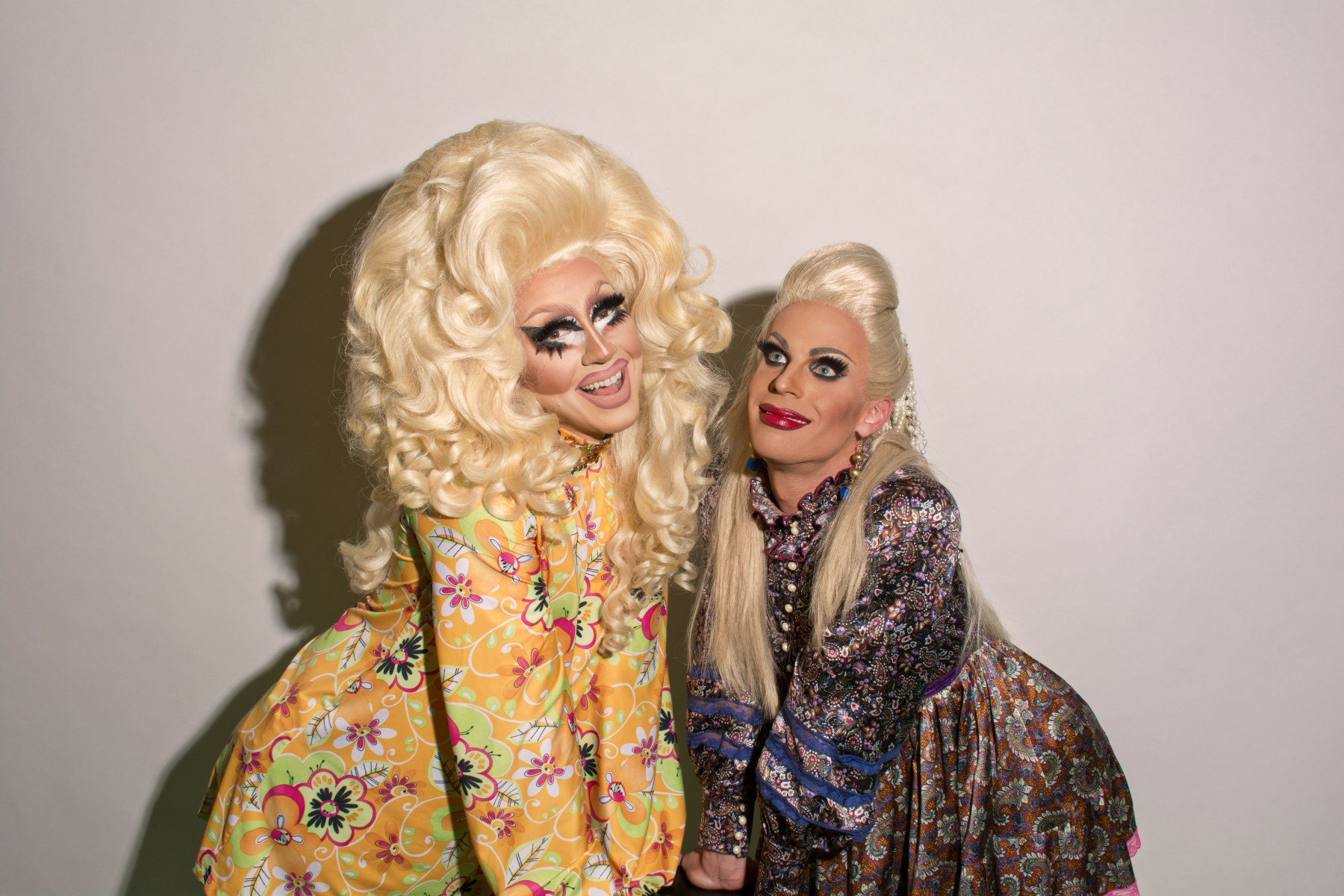Being in my first year of university has meant that I have participated in a lot of icebreaker activities, and one of the most common questions is ‘Which of your idols, living or dead, would you want to have dinner with?’. My go to answer is usually David Bowie, because I genuinely think he would be a really interesting person to have round for dinner, and because that answer makes me seem cooler and more alternative than I actually am. However, this question has always struck me as a strange one to ask, as we’ve all be warned to never meet our idols. This is because we often hold certain people to an impossible standard, a level of perfection and intrigue so unachievable by the average person that meeting these people and realising that they are just regular, or in some cases bad people, would crush us. However, drag queens Katya Zamolodchikova and Trixie Mattel seem to have found a way to avoid the looming disappointment of meeting your idol with one simple rule – if you lower everyone’s expectations of you, you can surprise them by not being as awful as they thought.
Recently in an interview with GAY Times magazine, the pair discuss their imperfections and how they really aren’t presenting themselves as role models, with Trixie Mattel saying “We are very human and we are not the example […] We’re not choosing the best angles. We don’t have the best angles”. It is with this sentiment that their audiences are introduced to these imperfect public personalities.
Trixie and Katya are RuPaul’s Drag Race alumni and currently star in their own internet show ‘UNHhhh’ on the WOWPresents YouTube channel. The show has weekly episodes that focus on topics ranging from sexual health to the two host’s excretion habits. Clearly no subject is too taboo or off limits for these queens. It is in these episodes where they put their imperfections on display for the entire internet to see. They don’t build themselves up to be these perfect, untouchable humans, in fact some of the stories they tell will make you think twice about going anywhere near them.
Due to social media and TV shows like RuPaul’s Drag Race, the art of drag has accumulated a large and fiercely loyal fanbase. Whether this is because of the progressive and inclusive values most drag queens represent, or the general quotability and meme-able moments that they produce, it is safe to say the fans often hold their favourite performers to unattainable standards of perfection. This can create a kind of toxicity in the community that gives the performers power over fans and more worth than the average person, but also the pressure to remain perfect in the eyes of their followers. As we have seen more recently in Hollywood, the combination of “worthiness” and power that some celebrities have make them believe that they deserve certain things, whether this be more respect, more money, or someone’s body it can put a ‘normal’ person in a difficult position where they feel like they owe it to the other person or that it would be disrespectful to deprive them of what they want.
However, projecting particular ideals of perfection onto the queens is no less damaging for those idolising the performers. This societal behaviour has the potential to warp a person’s perception of their own worthiness and can lead to a very unhealthy relationships with one’s self, but also means we judge each other based upon a skewed scale. This is where the existence of the imperfect idol becomes important and a valuable asset to not only the drag community, but also the entertainment industry in general. It reminds us that our role models are in fact regular people who have foibles and will often make more mistakes then good choices. ‘UNHhhh’ acts as a fun-loving cautionary tale for all of its viewers and as a reminder that most people aren’t perfect and that you aren’t alone in your incapability to function like a ‘normal’ human being.
The imperfect idol teaches us that success does not make a person perfect, it can actually damage a person more than anything. As soon as we accept this and apply it to our lives, we reduce the pressure of perfection that we place upon ourselves, but we also remove the power celebrity figures have over us. More and more, we are bombarded with images of perfection and expectations of the ‘average’ person and so the prevalence of imperfect idols is more and more necessary to show us that we are all just as flawed and strange as one another.
Image Courtesy of Mark Christopher

